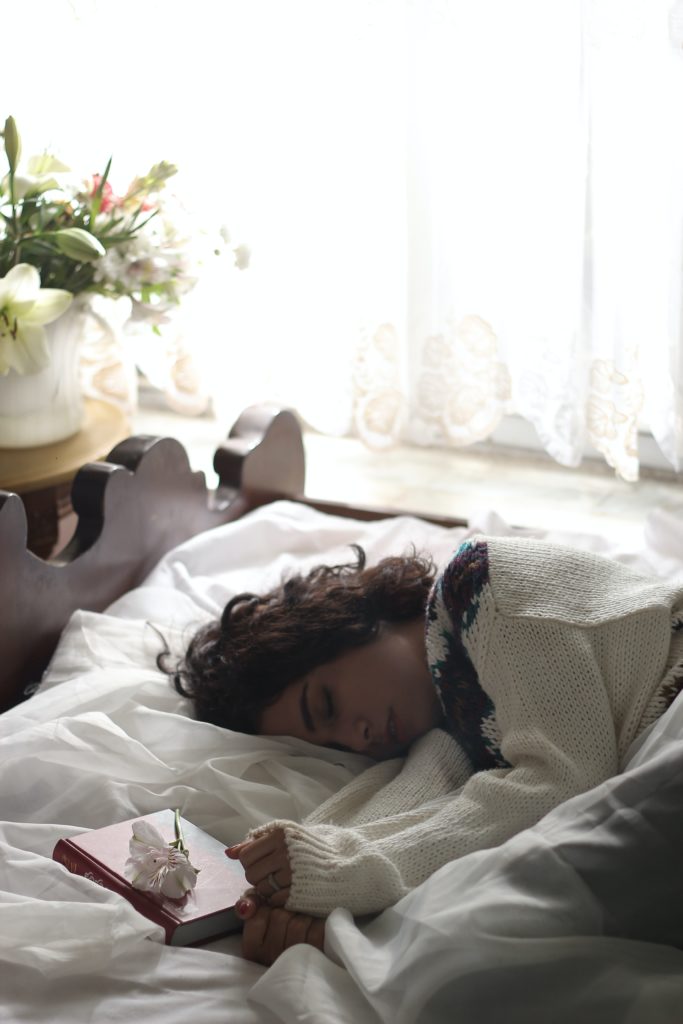The human body is remarkable in what it can accomplish, but it will eventually fall apart without rest. The sleep cycle is where renewal happens, and doctors recommend seven to nine hours of sleep every day. For many people, stress is as inescapable as sleep — and the two are intertwined far more than you would expect.
Sleep is one of the most critical biological functions your body depends on. While the reason your body requires sleep specifically hasn’t been pegged down yet, we know some of the things that happen to the body while you’re unconscious. For starters, your memories, immune systems, and hormonal balances are regulated and reinforced, among other things. Since so many processes rely on good sleep, it makes sense that poor sleep can throw our bodies and brains off kilter.
Poor sleep negatively impacts your physical and mental health; fatigue and irritability are common. Memory can be worsened and judgment impacted by mood changes. People can suffer from a lack of interest or motivation, becoming sluggish, sad, or even hyperreactive. These symptoms and general stress levels are reported at higher rates by adults who sleep fewer than eight hours a day.
Are Stress and Sleep Interdependent?

Considering the associated symptoms, it isn’t surprising that missing sleep can be stress-inducing. People who don’t take their sleep schedule seriously are more likely to develop depression and anxiety than regular resters. Both of these conditions generally make it harder to fall asleep, so it becomes a compounded issue.
So which came first, the chicken or the egg?
The truth is that sleep and depression (also read: stress) have a bi-directional relationship. Too much stress leads to less sleep, and poor sleep leads to depression. This makes it difficult to determine where either problem originates, so they’re harder to treat. Developing depression can lead to additional sleeping disorders like insomnia and hypersomnia, further complicating things and hurting those affected.
So what can you do to combat the dark side of this symbiotic relationship? Since both sides feed off of the other, managing both is essential to your mental and physical health. Like so many other things, the first step is awareness, and I believe that now you’re at least aware of the risks.
How to Fix Your Sleep Cycle
Now you have to take the first steps. Let’s start with managing stress. The MAPS Institute’s very own Laura Araujo has a great article on this subject. Aside from that, some simple methods include getting more exercise or giving meditation a try. Other aspects of your lifestyle that you can change include your diet and work life; eat healthier meals and avoid taking work home.
Your health is also affected by different substances. You should avoid caffeine and alcohol if you want to get better sleep, as well as lower your risk for stress buildup. Avoid going to bed when you aren’t at all tired. Laying down but being unable to sleep will cause your brain to associate your bed with, well, being awake! Don’t eat anything close to bedtime, and try to keep your environment dark and quiet.
At the end of the day, it’s usually a good time to go to sleep because it’s dark out.
Jokes aside, it is important to take your stress levels and the amount of sleep you get seriously. If you neglect one, the other will suffer, and you may become trapped in a cycle of negativity that leads to poor health. Speak to your doctor or a therapist if you find yourself struggling with depression or difficulty sleeping.
There are plenty of ways you can take control of this sort of situation, and you can find many on this site! Still, never be afraid to talk to an expert — you may not think a few sleepless nights are a big deal, but the consequences can spiral out of control if you aren’t careful.
Sources
Araujo, Laura. “How to Handle Stress the Samurai Way.” The MAPS Institute, 13 Feb. 2022, https://themapsinstitute.com/an-ode-to-your-modern-stress/.
Brown, Alison. “Sleep Matters.” James Kirk Bernard Foundation, 23 Apr. 2021, https://jameskirkbernardfoundation.org/featured/sleep-matters/?gclid=Cj0KCQjwnbmaBhD-ARIsAGTPcfUk3DduPRqCFAv8P6tXAnwfaKnoUqd3q5d6HNwxIzsOYUBwg99ONEUaAj9TEALw_wcB.
“Hypersomnia: Symptoms, Causes & Treatment.” Cleveland Clinic, https://my.clevelandclinic.org/health/diseases/21591-hypersomnia.
“Insomnia.” Mayo Clinic, Mayo Foundation for Medical Education and Research, 15 Oct. 2016, https://www.mayoclinic.org/diseases-conditions/insomnia/symptoms-causes/syc-20355167#:~:text=Insomnia%20is%20a%20common%20sleep,tired%20when%20you%20wake%20up.
Johnson, Jon. “Stress and Sleep: What’s the Link?” Edited by Timothy J Legg, Medical News Today, MediLexicon International, 5 Sept. 2018, https://www.medicalnewstoday.com/articles/322994.
Newsom, Rob. “Depression and Sleep.” Edited by Alex Dimitriu, Sleep Foundation, 25 Mar. 2022, https://www.sleepfoundation.org/mental-health/depression-and-sleep.
“Stress and Sleep.” American Psychological Association, 2013, https://www.apa.org/news/press/releases/stress/2013/sleep#:~:text=Adults%20who%20sleep%20fewer%20than,6.2%20hours).
“Stress: Signs, Symptoms, Management & Prevention.” Cleveland Clinic, https://my.clevelandclinic.org/health/articles/11874-stress.
Suni, Eric. “Anxiety and Sleep.” Edited by Alex Dimitriu, Sleep Foundation, 16 Sept. 2022, https://www.sleepfoundation.org/mental-health/anxiety-and-sleep.
Suni, Eric. “Stages of Sleep: What Happens in a Sleep Cycle.” Edited by Nilong Vyas, Sleep Foundation, 7 Oct. 2022, https://www.sleepfoundation.org/stages-of-sleep.
Suni, Eric. “What Happens When You Sleep: The Science of Sleep.” Edited by Ealena Callender, Sleep Foundation, 29 Aug. 2022, https://www.sleepfoundation.org/how-sleep-works/what-happens-when-you-sleep.
